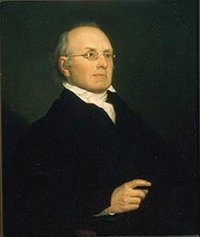Real 'radicals' of the gun debate
By Pittsburgh Tribune-Review (PA)
A well regulated Militia, being necessary to the security of a free State, the right of the people to keep and bear Arms, shall not be infringed. -- Second Amendment

Joseph Story was a U.S. Supreme Court justice from 1811 to 1845. He was the youngest associate justice, named to the bench at the age of 32 by President James Madison, a fella who knew a thing or two about the Constitution as its "father."
And it was in 1833 that Mr. Justice Story published what's still considered to be the seminal scholarly work on our national charter, "Commentaries on the Constitution of the United States." One of the most quoted passages from the book pertains to the Second Amendment:
"The importance of this article will scarcely be doubted by any person," he wrote. "The right of the citizens to keep and bear arms has justly been considered as the palladium of the liberties of a republic; since it offers a strong moral check against the usurpation of and arbitrary power of rulers; and will generally, even if these are successful in the first instance, enable the people to resist and triumph over them."
Seldom quoted but just as important is another passage:
"Among the American people ... there is certainly no small danger that indifference may lead to disgust, and disgust to contempt; and thus gradually undermine all the protection intended by this clause of our national bill of rights."
Chillingly prescient, is it not?
Now, gun-grabbers will be quick to argue that Story is being selectively quoted to make a point not of his original intent. After all, Story's quotations indeed are in reference to a "well regulated militia."
But contrary to popular misinterpretation, that Second Amendment phrase is not a reference to a government-sanctioned and -regulated federal army or even the states' national guard.
"The overriding purpose of the Framers in guaranteeing the right of the people to keep and bear arms was a check on the standing army, which the Constitution gave the Congress the power to 'raise and support,'" reminds Second Amendment scholar Daniel J. Schultz in "The e_SSRqLectric Law Library."
Or as Mr. Schultz adds, quoting Noah Webster from a pamphlet urging ratification of the Bill of Rights:
"Before a standing army can rule, the people must be disarmed; as they are in almost every kingdom in Europe." So, too, this sentiment was voiced by Mr. Madison's close ally, Tench Coxe of Pennsylvania, Schultz writes.
"Thus, the well regulated militia necessary to the security of a free state was a militia that might someday fight against a standing army raised and supported by a tyrannical national government," says Schultz.
The generally recognized definition of "well regulated" in the Framing era, by the way, was that of the citizenry organizing its own efforts. "The militia" of the same era was "the whole people" or "the whole body of the people."
The Framers said what they meant and meant what they said.
Thus, today's gun debate is the ultimate perversion. A federal government with massive firepower seeks to further limit the constitutional right of the law-abiding people to keep and bear even the most modest arms by comparison. And, in the process, it denigrates not only the Bill of Rights, not only the people but America itself.
Who are the real "radicals," again? And who's the greater threat to these united states?
